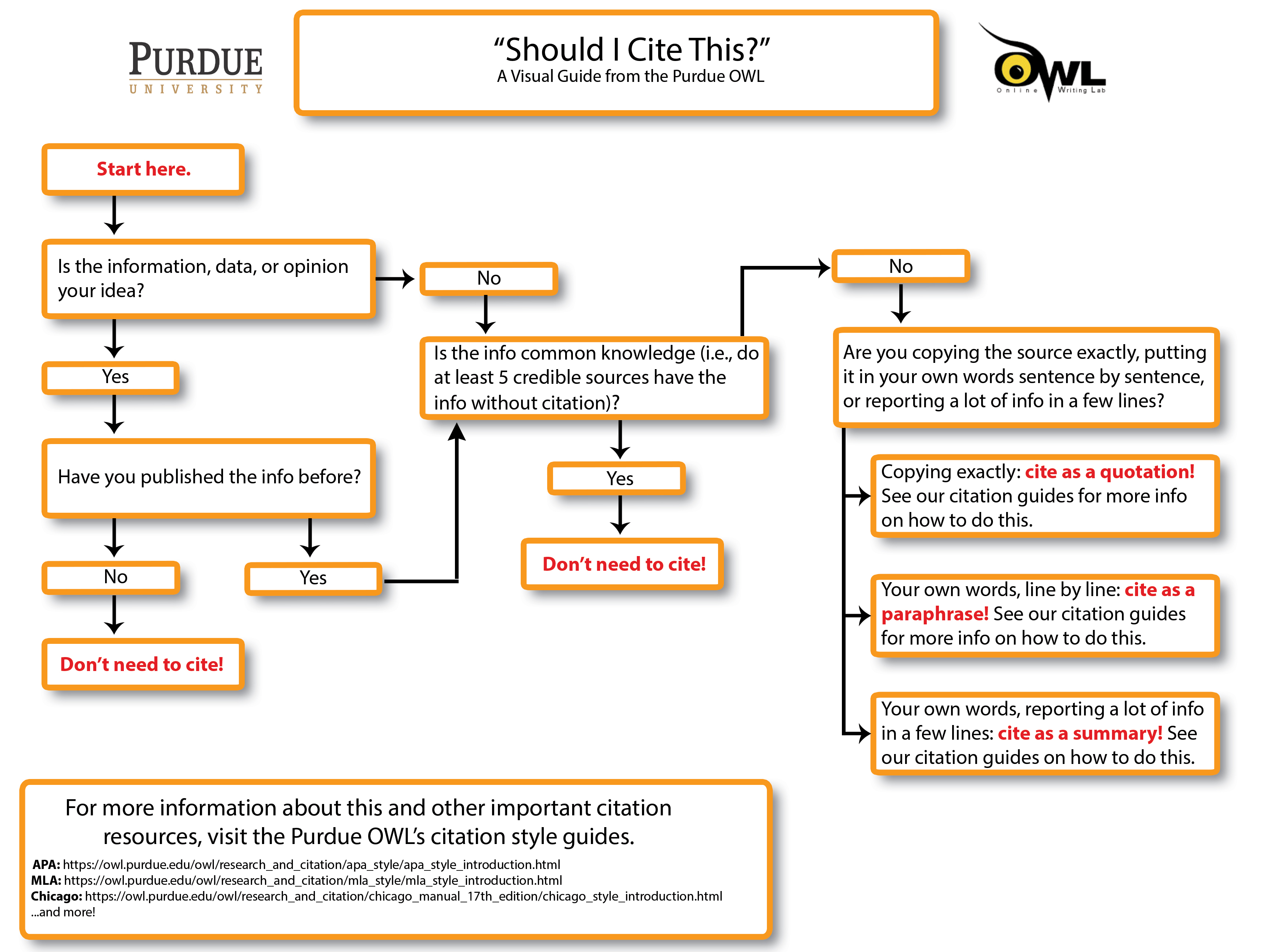Academic Honesty & Academic Integrity
Academic Honesty means being honest and ethical about the way that you do academic work. This includes citing and acknowledging when you borrow from the work of others. As Holy Cross students, you are required to follow the College's Academic Honesty policy.
Excerpt from the College policy:
"It is the responsibility of students, independent of the faculty’s responsibility, to understand the proper methods of using and quoting from source materials (as explained in standard handbooks such as The Little Brown Handbook and the Harbrace College Handbook), and to take credit only for work they have completed through their own individual efforts within the guidelines established by the faculty."
For more information and guidelines on Academic Honesty, visit the
Academic Honesty & Academic Integrity Research Guide.
Always cite...
- Exact quotations from another source;
- Information summarized or paraphrased from another source [even websites]
- Information received from other people, for example during an interview or oral history;
- Graphs, illustrations, or other visual information created by someone else [even from a website]
- Video and audio recordings created by someone else [even from a website]
In general, you should always cite facts, ideas or words that you did not create yourself.
You usually don't have to cite...
- Your personal life experiences;
- Ideas that are entirely your own;
- Results from lab or field experiments that you conducted yourself;
- Images, music or other media that you created yourself;
- Information that is considered “common knowledge” (facts or ideas that most people will know, and that you can find in many places without a citation).
When in doubt, it's always better to cite.
Practicing good research hygiene helps prevent accidental academic dishonesty!
Take good notes.
- Before writing a note, read the original text until you understand what it is saying. It's okay if you have to read it several times!
- Use quotation marks whenever you copy exact phrasing.
- Record the source for each quotation or piece of information (including page numbers) as you go.
Make sure that you...
- Keep track of which quotes and information came from which source;
- Note page numbers and other detailed directions so that you can find the information again later;
- Record all of the information you need to cite each source that you consult, even if you're not sure yet if you'll use it.
Use a variety of sources in your research.
This helps make sure you aren't relying too much on one author's ideas and writing.
If you are having trouble finding enough different sources, ask a librarian for helphttp://libguides.holycross.edu/ask!
Be careful when using AI generators.
In many cases, using language written for you by an AI generator like ChatGPT -- even if you've only asked ChatGPT to edit your own writing -- can be considered academic dishonesty. Some professors will allow you to use AI generators in certain approved ways, and others will forbid it entirely. Make sure you are familiar with the individual professor's policies on AI, and ask for clarification if needed.
Leave enough time to do your research and writing.
If you are rushing to finish your paper, you are more likely to accidentally plagiarize or forget a citation. In most cases, it's far better to ask your professor if they will consider an extension.
To the extent possible, cite as you write.
It's okay to leave your full bibliography for later in the process - but as you are writing, make sure that you are noting when you include information that needs to be fully cited later. At the very least, try to create a temporary citation with author and page number so that you can go back later.
Don't assume you will be able to remember which words are your own and which are paraphrased or quoted -- it's easy to lose track!

